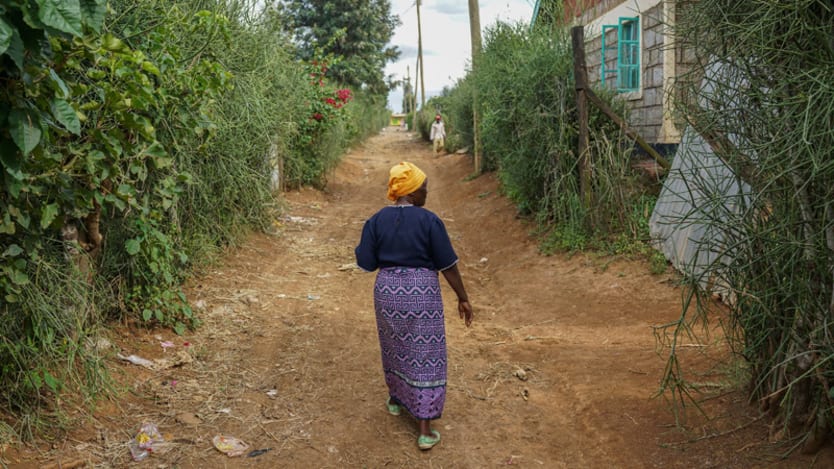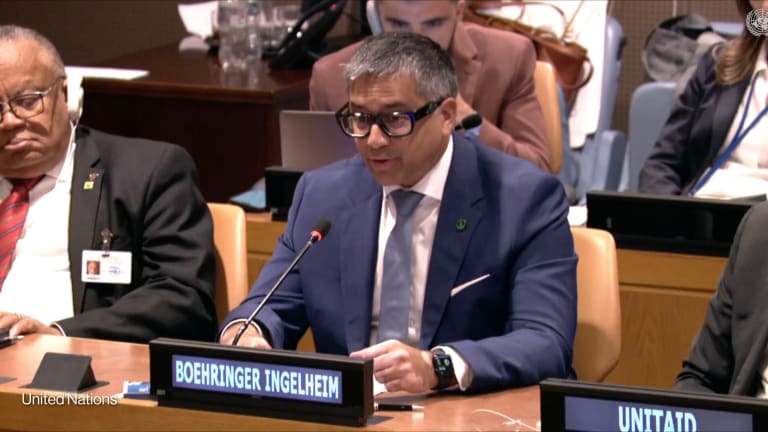People, partners and persevering — collaborations to tackle chronic illnesses

Peninah had a racing heartbeat and headaches, but at 65, she put it down to getting old. And in any case, if it was something worse, how would she afford the treatment? Luckily, Peninah’s children convinced her to go the clinic. The visit to the doctor, the blood test and the pills cost Peninah 300 Kenyan shillings (about $3). Today, she says the treatment was a good investment, because now despite having a heart condition, she is back at work in her rice field and earning her living.
Peninah’s experience shows that things are changing and prospects for the care of people with chronic illnesses such as asthma, diabetes, heart disease and cancer in rural Kenya are improving. But with one-third of deaths in Kenya today due to chronic illnesses — half of which could be prevented — we need to act fast and smart.
This experience shows that some of the heartbreak caused by chronic illnesses can be avoided by educating the communities to take care of themselves, by building partnerships that break the cycle of poverty and access, and by increasing health capabilities to diagnose and treat chronic diseases.
Here are three ways to improve in all these areas:
1. Partner to improve access and affordability.
Like many Kenyans with modest incomes, Peninah has to pay for treatment herself. Expensive medicines can be an obstacle to long-term care of chronic diseases. But there is some hope that we can overcome this problem for some people in communities across Kenya. The Kenya Red Cross, for example, has two programs working with the Danish Red Cross, the Danish International Development Agency — DANIDA, and the International Federation of the Red Cross and Red Crescent Societies to improve access to screening.
We also work with Novartis Access to provide 15 medicines for the four main types of chronic diseases — cardiovascular diseases, diabetes, respiratory diseases, and breast cancer — at a cost of $1.50 per treatment per month for patients. The improved access has begun to shift attitudes.
For instance, on a typical day, the clinic in Mwea in the Kirinyaga County, north of Nairobi, where Peninah receives treatment has over 300 people waiting for visits, checkups and prescriptions, the vast majority related to chronic conditions.
2. Build health care capacity.
The health system in Kenya has for decades focused mainly on infectious diseases, and as a result the infrastructure to treat chronic conditions is weak. The Kenyan Red Cross works with the Kenyan Ministry of Health at county level to screen and diagnose people for diabetes, hypertension, cardiovascular diseases and different forms of cancers in health facilities and communities, as well as training health care workers.
3. Avoid reinventing the wheel.
We must build on the experience gained from treating infectious diseases, and work with people in the community to help educate the rest of the community about chronic conditions. Peninah, for example, now chairs the local women’s group in Kiandegwa village, which meets weekly and discusses health care topics, from basic sanitation to chronic diseases. Awareness campaigns are also critical: The Kenya Red Cross has reached in the past about 300,000 people with NCD awareness messages and over the next two years, we will get the message out about NCD prevention and control to a further 1 million people.
Despite these efforts, the challenges remain immense. We need clinics that were designed to treat acute illnesses transformed into centers for cost-effective, accessible management of chronic conditions. We have to develop an integrated approach to chronic illnesses that includes prevention, treatment and rehabilitation measures.
To do this, we will need to continue to seek and build on existing partnerships so that scarce resources available are allocated in a way that maximizes health as much as possible. But the steps are already underway, and that gives me confidence that more people like Peninah will have a shot at a healthy and productive life.
Making Markets Work is an online conversation to explore what’s being done to make global health care markets accessible to people at the base of the pyramid. Over 10 weeks, Devex and its partners — The Abraaj Group, Philips and Population Services International — will amplify the discussion around effective health financing, analyze key challenges blocking universal market access in the health care supply chain, and explore the key strategies to make markets more effective. Join us as we look at this important issue, and share your thoughts by tagging #MakingMarketsWork and @Devex.
Search for articles
Most Read
- 1
- 2
- 3
- 4
- 5








